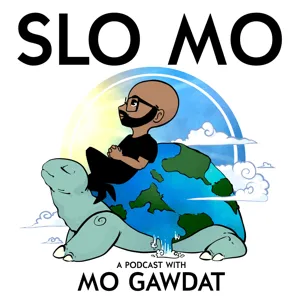Podcast Summary
Breathing as a tool for reducing stress: Deep belly breathing can help reduce stress by signaling safety to our bodies and promoting relaxation
Our breath is a powerful tool in reducing stress and promoting a sense of safety in our bodies. When our body feels tense or unsafe, our breath becomes shallow and quick, signaling to our body that it needs to prepare for a threat. By intentionally practicing deep belly breathing, we can teach our body to send signals of safety and help reduce stress. This simple practice, which we can do anywhere at any time, can have a significant impact on our ability to cope with stress and improve our overall well-being. For those who may not feel calm or present in their bodies, this is a practical and accessible way to begin creating a sense of safety and relaxation. Remember, our breath is always with us, making it a powerful tool for managing stress and promoting overall health and wellness.
Practice deep belly breathing daily for emotional regulation: Daily deep belly breathing practice can help establish emotional regulation and self-calming, making it a portable and accessible tool for better choices in various situations.
Starting small with a daily commitment to practicing deep belly breathing can help establish a foundation for emotional regulation and self-calming. This simple practice, which only takes a few minutes, can send a signal to the body that it is safe and calm. Consistency is key, as regular practice can make the tool more effective in moments of emotional intensity. The breath is a portable and accessible tool that can be used throughout the day and in various situations to help regain control and make better choices. By starting with a small promise to oneself, such as five belly breaths each morning, individuals can build a foundation for emotional resilience and develop the habit of intentional self-regulation.
Learn effective breath practices for mental and physical well-being: Practicing intentional physiological sighs can enhance their calming effects and become a sustainable lifestyle habit for managing stress and anxiety
Effective breath practices, like the physiological sigh, can significantly improve mental and physical well-being. However, mastering these techniques can be challenging for beginners. It's important to remember that breath work is not a magic solution, but a tool that, when used consistently, can help manage stress and anxiety. The physiological sigh is a natural self-regulating mechanism our bodies use to release tension. By intentionally practicing this sigh, we can enhance its calming effects and incorporate it into our daily routine. Remember, the goal is to make these practices quick, easy, and approachable, so they become a sustainable lifestyle habit.
Practicing breathwork for self-awareness and body connection: Focusing on breath can reduce tension, release muscle tension, and create a sense of calm and grounding. Make it a consistent part of daily routine for improved overall well-being and resilience.
Practicing self-awareness and body connection through breathwork can have a significant impact on our physical and emotional well-being. By focusing on our breath, we can assess where it's coming from in our body, elongate our exhales, and drop into our physical presence. This simple practice can help reduce tension, release muscle tension, and create a sense of calm and grounding. By regularly checking in with our bodies and tuning in to our breath, we can improve our overall well-being and resilience. Whether it's through a quick self-assessment or a longer breathwork session, the key is to make it a consistent part of our daily routine.
Explore the benefits of practicing breathwork regularly: Regular breathwork practice enhances self-awareness, calms the nervous system, and boosts overall well-being. Find a resonating method and use it daily for improved interactions and relaxation.
Practicing breathwork regularly, even for just a few minutes, can provide significant benefits for self-awareness, nervous system regulation, and overall well-being. The specific breathwork practice may vary from person to person, and it's important to find one that resonates with you. Even if you're already familiar with these practices, they can still offer valuable insights and help you identify areas of tension or nervousness. Breathwork is a simple yet powerful tool that can be used throughout the day to promote relaxation and improve the quality of conversations and interactions. Remember, none of us are perfect, and utilizing these practices can help us be more present and effective in our daily lives. If you're interested in receiving more positivity and insights, sign up for the Friday 5 email at DrChasci.com/Friday5.




